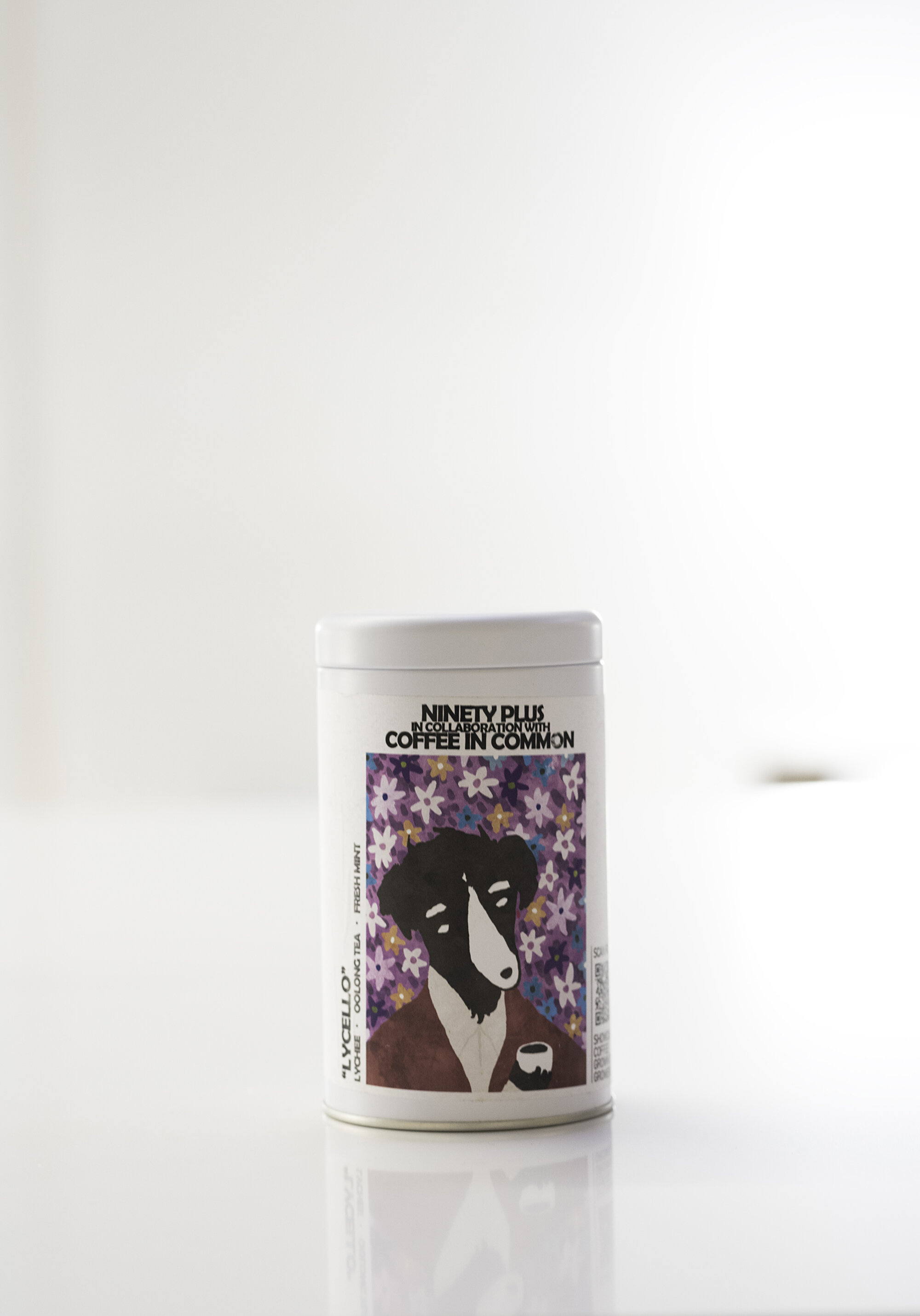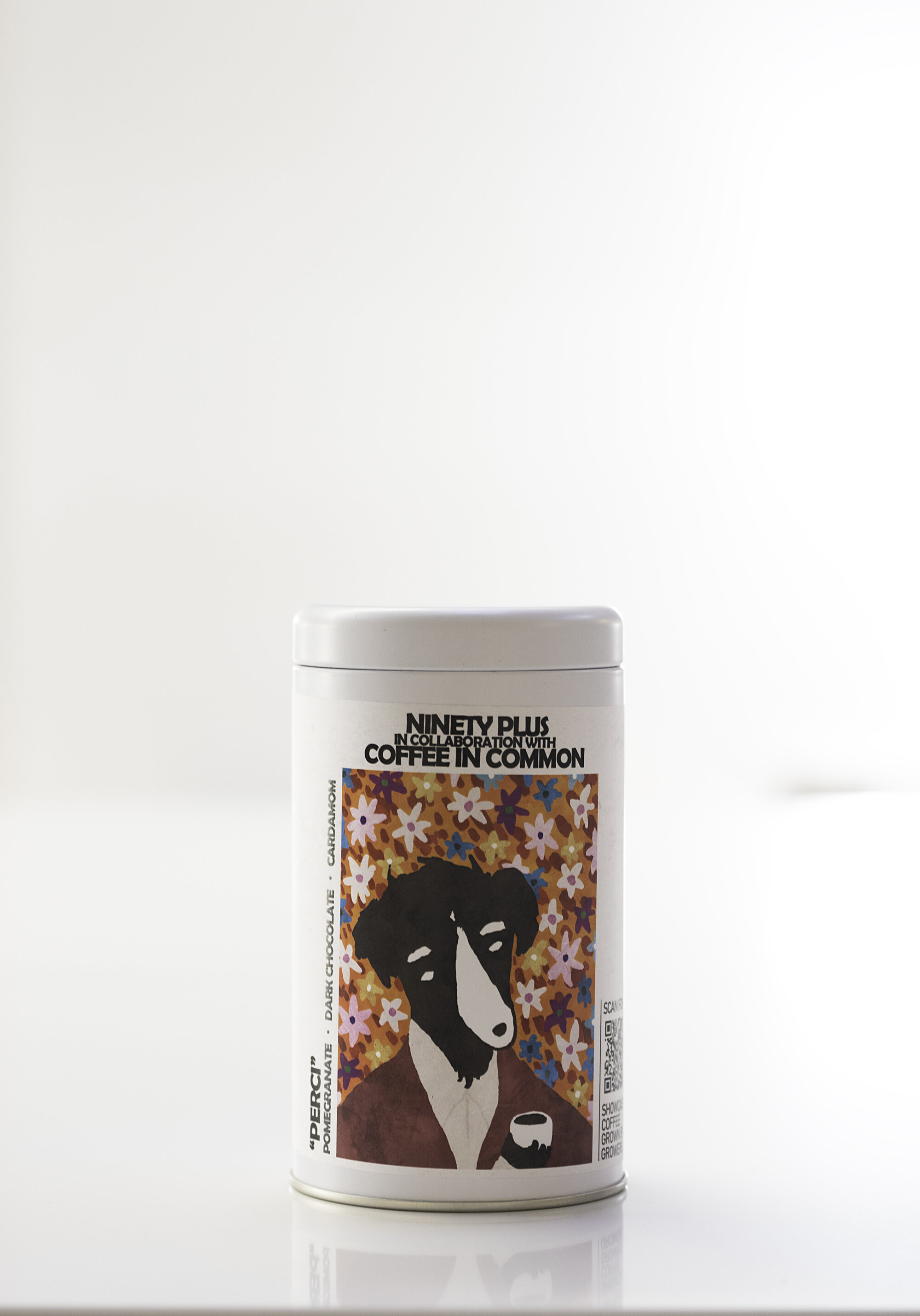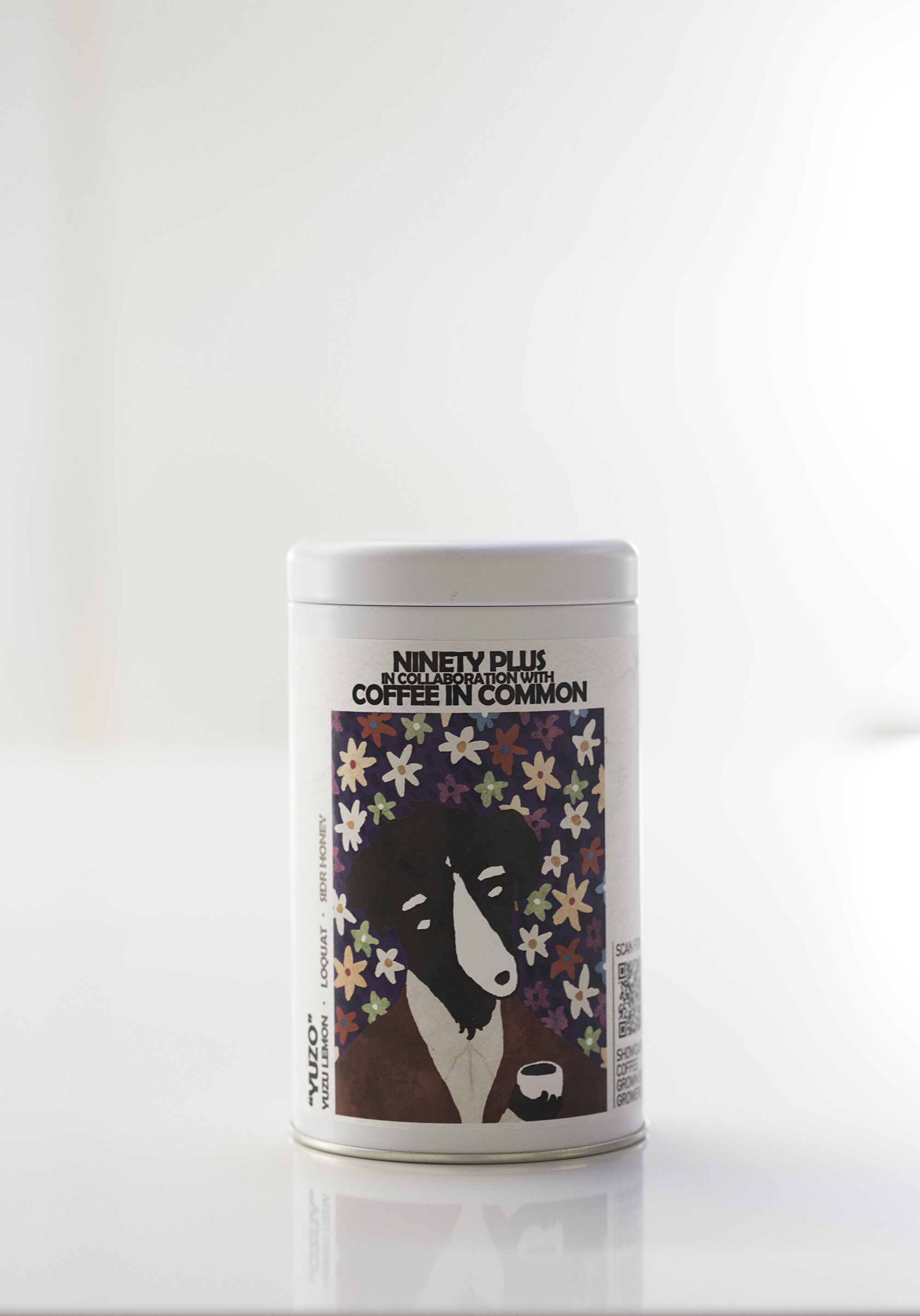
Ninety Plus Coffee
Signature Range
Juliette.
orange peel, vanilla, white peach
Named for its romantic and subtly seductive nature (2-time Chinese Champion and WBC finalist Jeremy Zhang is among her victims), Juliette is among the sweetest coffees produced by Ninety Plus.
Like rosé versus white or red, it manifests both the clarity of the classic floral and citrus profile of traditional gesha coffee while being balanced with depth and creaminess in the structure.
Farm: Ninety Plus Gesha Estates
Location: Silla de Pando, Volcan,
Republic of Panama
Terroir: Rich volcanic soil, only 400-500 years old
Elevation: 1,500-1,700 meters above sea level
Profile: Juliette
Variety: Gesha
Process: Dry Fermented/Pulped
Drying Style: Dried in Musilage
Production year: 2022
Lycello.
lychee, oolong tea, fresh mint
Inspired by the words “lychee” and “cello”, Lycello was the first taste profile created at Ninety Plus Gesha Estates in Panama. Lycello Batch 5 of 2014 was the first of 5 Ninety Plus coffees used to win the World Brewer’s Cup Championship (5 World Championships in the last 6 years).
Farm: Ninety Plus Gesha Estates
Location: Silla de Pando, Volcan,
Republic of Panama
Terroir: Rich volcanic soil, only 400-500 years old
Elevation: 1,500-1,700 meters above sea level
Profile: Lycello
Variety: Gesha
Process: Dry Fermented/Washed
Drying Style: Dried in Husk
Production Year: 2022
Perci.
pomegranate, dark chocolate, cardamom
Ninety Plus was the first to naturally process the gesha variety in Panama. Perci – short for perspective – is named for the sense of discovery and possibility with natural processing of coffee, which had its beginnings with game-changing events in 2007.
After bringing samples of its first experimental natural process coffees (fermented and dried in cherry) from Ethiopia to Panama in 2007 and sharing them with producer families in Boquete, a collaboration was made with Graciano Cruz of HiU Coffee and José David Garrido of Mama Cata to naturally process gesha for the first time for Ninety Plus.
Farm: Ninety Plus Gesha Estates
Location: Silla de Pando, Volcan,
Republic of Panama
Terroir: Rich volcanic soil, only 400-500 years old
Elevation: 1,500-1,700 meters above sea level
Profile: Perci
Variety: Gesha
Process: Anaerobic
Drying Style: Dried in Cherry
Production year: 2022
Lotus.
tamarind, lavender, fennel
Fermenting coffee is a thermogenic process and often requires thermoregulation. The Ninety Plus Lotus process was the first (in 2014) to utilize temperature regulation in fermentation of whole coffee cherries.
Lotus coffee is named for the sacred lotus which is capable of generating heat and regulating the temperature of its beautiful blossoms.
Farm: Ninety Plus Gesha Estates
Location: Silla de Pando, Volcan,
Republic of Panama
Terroir: Rich volcanic soil, only 400-500 years old
Elevation: 1,500-1,700 meters above sea level
Profile: Lotus
Variety: Gesha
Process: Hot Anaerobic
Drying Style: Dried in Cherry
Production year: 2022
Kambera.
dark chocolate, maraschino cherry, plum
In 2005, Ninety Plus Founder, Joseph Brodsky, traveled to Ethiopia for the first time and decided to make it home for the coming years, having fallen in love with the people, the food, the language, the culture, and the semi-forested coffee lands in Ethiopia’s southwest.
Kambera derives its name from “Kampi” (site of Kampi Cooperative, a visit to which inspired – along with a hike to Ethiopia’s wildest coffee forests on the same trip – the coffee reforestation model currently employed at Ninety Plus) and “berry”. Kambera is now cultivated at Ninety Plus Gesha Estates in Panama, a proof of concept of the model inspired by Joseph’s very first visits to Ethiopian coffee communities and coffee wilderness.
Farm: Ninety Plus Candela Estates
Location:Piedra Candela, Republic of Panama
Terroir: Rich volcanic soil, only 400-500 years old
Elevation: 1,200-1,550 meters above sea level
Profile: Kambera
Variety: Gesha
Process: Anaerobic
Drying Style: Dried in Cherry
Production Year: 2022
Innovation Range
Ruby.
violet, dark chocolate, musk, candied grapefruit
Ruby was first developed by Ninety Plus by accident in a processing experiment gone wrong in Ethiopia in 2015. The coffee processed yielded a high count of exceptionally red seeds, which, when tasted separately had an incredible red wine and red fruit intensity. We repeated the process in Panama, and a resulting batch called Perci Red scored 97 points on Coffee Review.
When World Champion George Koustoumpardis joined Ninety Plus in 2015, Joseph invited George to work with him to take this process to a different level, and Ruby was born. The Ruby name is derived from the uniform and deep burgundy color of the unroasted coffee seeds. Ruby is the most intense coffee in the Ninety Plus menu. Ruby is enjoyed in honor of George and his wife, Konstantina, who have lived and worked as core members of the Ninety Plus Estates team in Panama since 2017.
Farm: Ninety Plus Gesha Estates
Location: Silla de Pando, Volcan,
Republic of Panama
Terroir: Rich volcanic soil, only 400-500 years old
Elevation: 1,500-1,700 meters above sea level
Profile: Ruby
Variety: Gesha
Process: Hot Anaerobic Drying
Style: Dried in Cherry
Production Year: 2022
Tigre.
oak wood, chocolate syrup, cherry jam
Tigre is the second of two completely new taste profile discoveries in 2020 by Ninety Plus. Tigre has a taste profile that resembles buttered rum cake or cognac, laden with chocolate and cherry.
Just too much yum in this one. Tigre is named in honor of Camilo Sanchez, Director of Estates at Ninety Plus, who manifests the strength and perseverance of a tiger in his daily work. “El Tigre” is also known for his adventures with Joseph Brodsky in the magical coffee wilderness at Ninety Plus Estates.
Farm: Ninety Plus Gesha Estates
Location: Silla de Pando, Volcan,
Republic of Panama
Terroir: Rich volcanic soil, only 400-500 years old
Elevation: 1,500-1,700 meters above sea level
Profile: Tigre
Variety: Gesha
Process: Innovation/Proprietary
Drying Style: Dried in Cherry
Production Year: 2022
Yuzo.
yuzu lemon, loquat, sidr honey
Born in 2020, this completely new processing formula utilizes the leaf of the coffee plant in fermentation to create a signature citric and juicy taste more reminiscent of sake and Sancerre wine than of any traditional coffee taste.
Farm: Ninety Plus Gesha Estates
Location: Silla de Pando, Volcan,
Republic of Panama
Terroir: Rich volcanic soil, only 400-500 years old
Elevation: 1,500-1,700 meters above sea level
Profile: Yuzo
Variety: Gesha
Process: Innovation/Proprietary
Drying Style: Dried in Cherry
Production Year: 2022
Kule.
watermelon, rose hip, meyer lemon
Ethiopians traditionally consume both coffee leaf (kuti) and cherry (buna kela). Ninety Plus also considers all parts of the coffee plant in its processing recipes. The Kulé process utilizes the husk (cherry) of the coffee fruit as an ingredient in fermentation. Although Ninety Plus has used coffee cherry for several years, this particular formula is new for the 2021 harvest and yields a juicy and refreshing watermelon / rose hip taste. Incredible hot or chilled.
Farm: Ninety Plus Gesha Estates
Location: Silla de Pando, Volcan,
Republic of Panama
Terroir: Rich volcanic soil, only 400-500 years old
Elevation: 1,500-1,700 meters above sea level
Profile: Kulé
Variety: Mixed Heirloom
Process: Innovation/Proprietary
Drying Style: Dried in Cherry
Production Year: 2022








